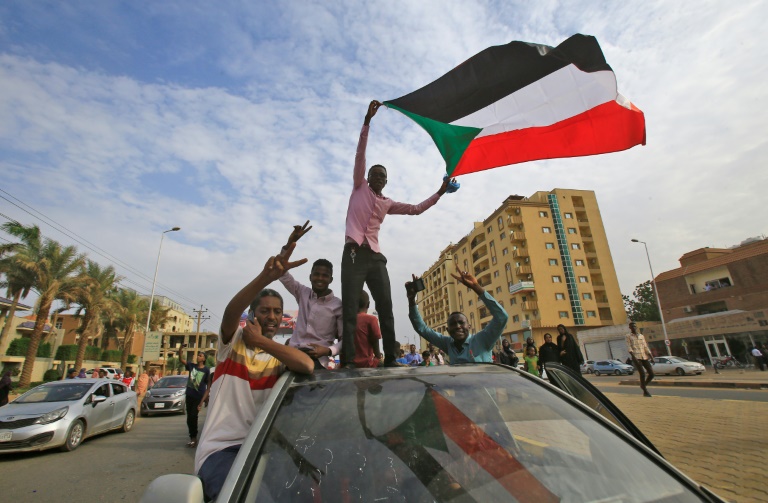
Sudan’s ruling generals and protest leaders reached a “full agreement” on the constitutional declaration, the African Union said on Saturday, paving the way for transitioning to civilian rule.
The document is complementary to a power-sharing deal signed on July 17 that aims to form a joint civilian-military ruling body which will oversee the formation of a transitional civilian government and parliament to govern for a three-year transition period.
It comes after prolonged negotiations between Sudan’s ruling military council and leaders of the protest movement which toppled veteran leader Omar al-Bashir in April.
“I am announcing to the Sudanese, African and international public opinion that the two delegations have fully agreed on the constitutional declaration,” AU mediator Mohamed El Hacen Lebatt told reporters.
He said meetings will be held to work out the technical details of the deal and discuss the formal signing ceremony.
After the announcement, reporters erupted in cheers and the generals immediately exited the hall where the negotiations were held in Khartoum. Protest leaders remained to answer journalists’ questions.
“We agreed on sensitive issues related to security and independence of the judiciary and the powers of the cabinet as well as the ruling sovereign council,” protest leader Ibrahim al-Amin told AFP.
Under the agreement, “the feared paramilitary Rapid Support Force will report to the head of the armed forces,” said protest leader Monzer Abu al Maali.
The protest movement has long blamed the irregulars of the powerful RSF, whose commander General Mohamed Hamdan Daglo is deputy head of the ruling military council, for the deadly violence against demonstrators.
‘Revolution succeeded
Crowds of Sudanese people outside the hall broke out in celebration after the announcement.
The jubilant crowds waved the Sudanese flag chanting “civilian, civilian” and women were ululating as cars driving honked their car horns, according to an AFP correspondent in the area.
“We have been waiting for a civilian state to seek fair retribution from the murderers of our sons,” one protester Somaiya Sadeq told AFP.
On June 3, armed men in military fatigues carried out a brutal raid on a protest camp in Khartoum that was widely blamed on the RSF.
At least 127 people were killed, according to doctors linked to the protesters. Officials have given a much lower death toll.
On Thursday, four protesters were shot dead at a rally in the Sudanese city of Omdurman, according to medics linked to the protest movement.
The gunfire occurred as thousands of demonstrators took to the streets in several cities across Sudan, including the capital Khartoum and its twin city Omdurman, to demonstrate against the killing of schoolchildren at a Monday protest in Al-Obeid in North Kordofan.
General Shamseddine Kabbashi, spokesman for the ruling military council, announced on Friday that nine paramilitary men of the feared Rapid Support Forces had been arrested for killings in Al-Obeid and vowed that measures will be taken against those responsible for Thursday’s violence.
To protester Ahmed Ibrahim, the agreement is a proof to the success of the Sudan’s popular uprising since December against Bashir.
“For us, the revolution succeeded now and our country set foot on the road toward a civilian rule,” said the 25-year-old.
Image: AFP / ASHRAF SHAZLY The agreement comes after prolonged negotiations between Sudan’s ruling military council and leaders of the protest movement




